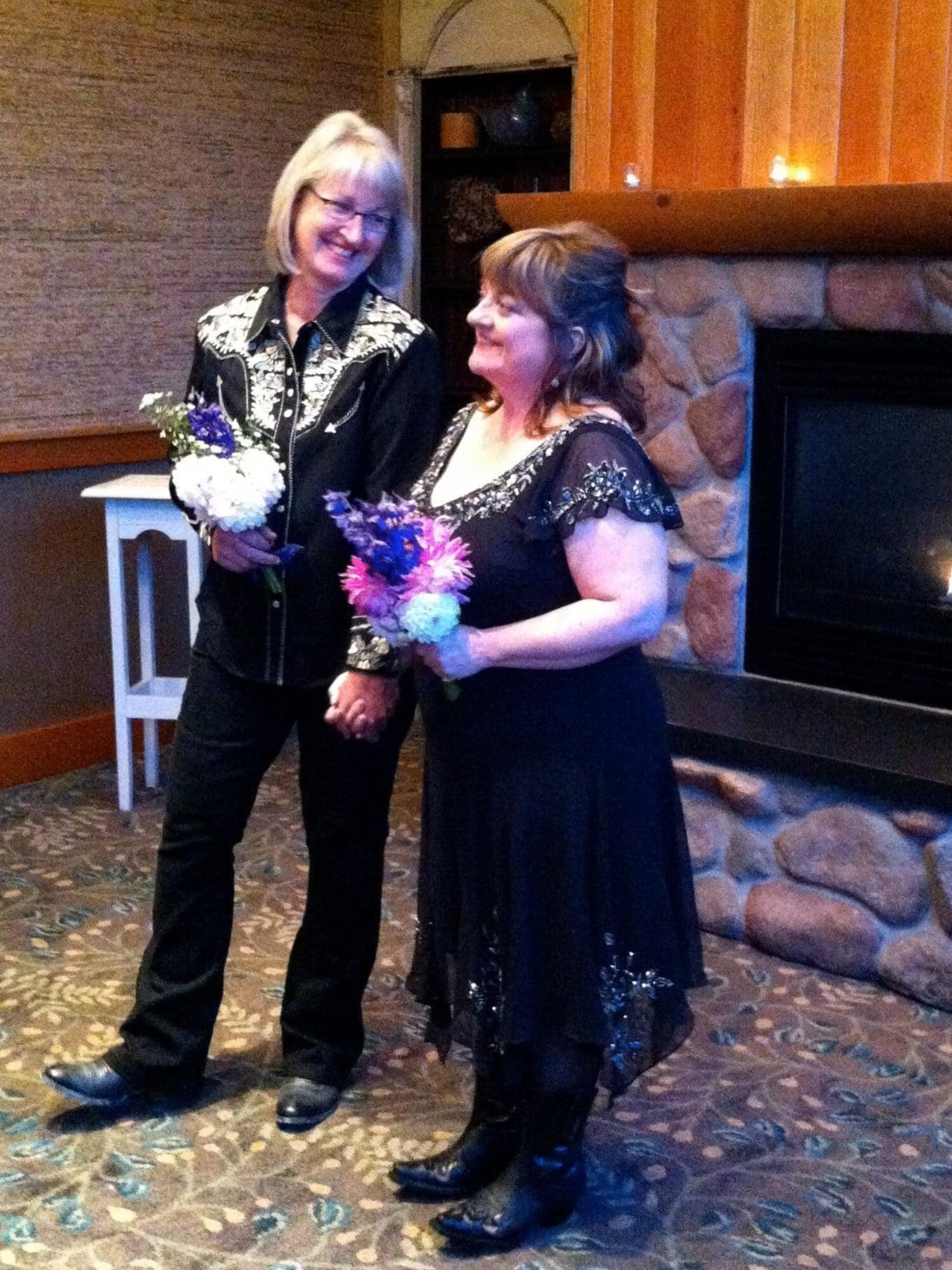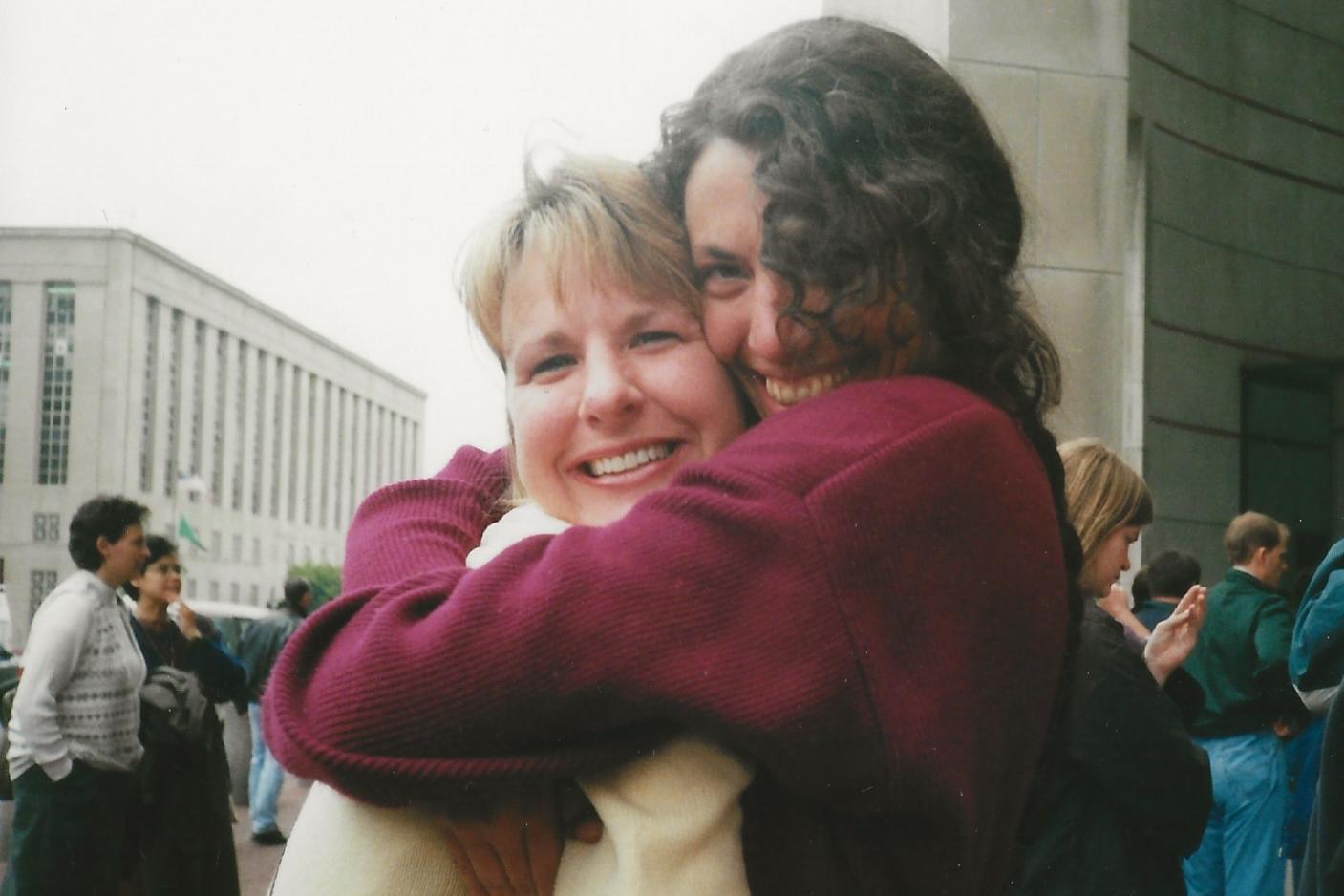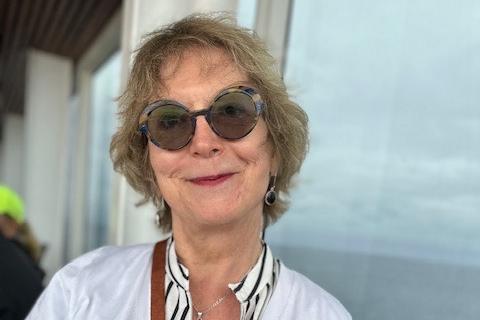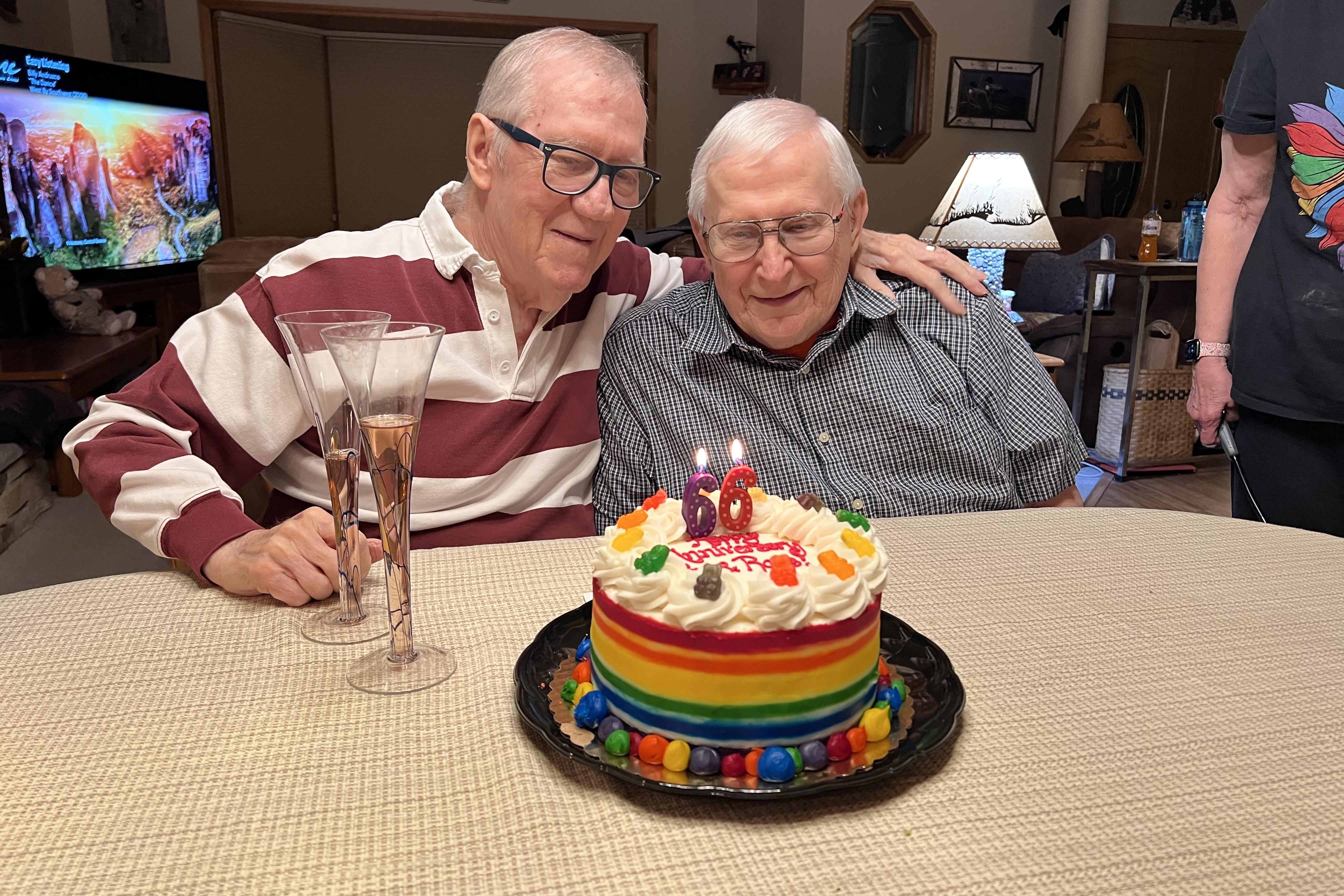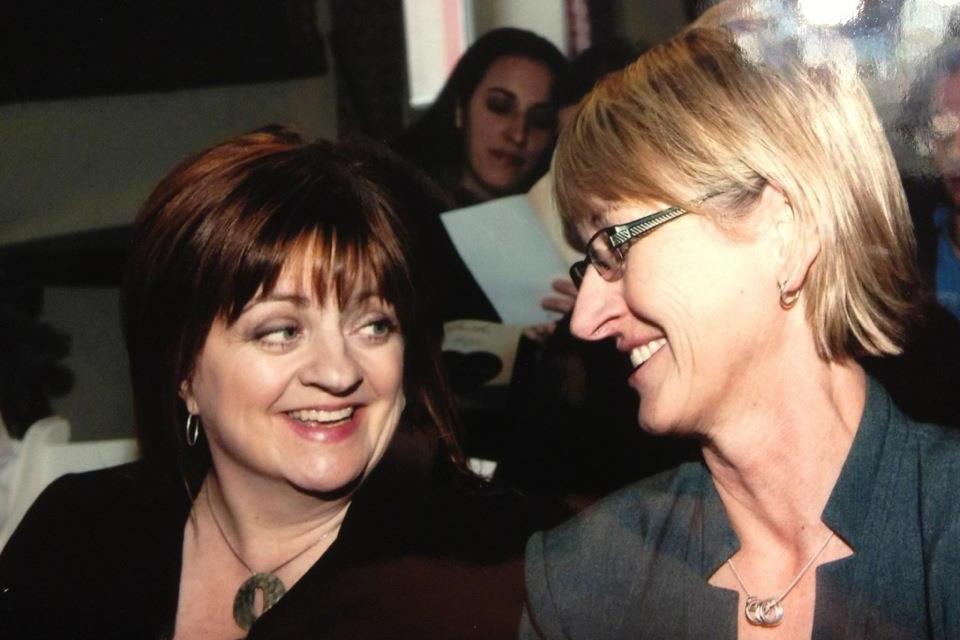
Pam Mehnert and Lisa Malmarowski: consciously coupled

These two women have been together since 1998 when they met at the Outpost Natural Foods Co-op.
Pam was the general manager, and Lisa was a sales representative. Mehnert offered Malmarowski a job, and the rest is history. They initially entered into a domestic partnership when it became legal in Wisconsin, but later decided to get legally married in a state where they could relocate if required. They married in Seattle, Washington, on September 18, 2023, and celebrated in Milwaukee that November with friends and family.
Lisa, who never envisioned getting married, did not want to be constrained that way. "I never imagined my future and wanted to live in the moment." Before meeting Pam, she had dated men and women. She grew up in a typical Midwestern, middle-class household. Her family was Catholic but not very strict, so she did not have to contend with the religious baggage that many gay individuals must navigate.
She discovered her "people" in school through music and theater and had close friends. "I didn't realize my high school friend Mark was gay until we were both in college, and he came out to me," said Lisa. Later, she discovered that most of the men she dated or hung out with in school were gay.
Pam, on the other hand, grew up in a highly religious family that joined a worldwide church ("some might consider it a cult," said Pam) when she was 12 years old. At 14, she enjoyed spending time with boys as friends but was also attracted to girls.
"I was sporty and quite a tomboy, so I could wear jeans and t-shirts most of the time in high school," said Pam. "I had crushes galore and wrote what probably looked like love letters to many a girlfriend. The Christian guilt and my naivety kept that from going further. Growing up in a Christian family, like many others, I pushed those feelings deep, deep down until I weas 26."
Pam's first gay bar experience was at Fannie’s in Milwaukee. It was amazing and scary for her at the same time. Dancing and holding hands with a girlfriend/partner for the first time in public was something she never could have imagined.
A favorite gay bar memory was playing a game of pool with her partner and having two very, very butch women put their money on the table (meaning, of course, they wanted to play us in the next game). Before the match started, her partner whispered, "We better let them win."
Lisa moved to Madison at 17, where she went to a gay bar for the first time called Going My Way. The nightclub had three floors, with the lower level being the women's bar. She gravitated to that space, and meeting someone who asked her to dance took little time.
"I guess I knew then but never really identified as anything. I saw myself as bisexual, but the big emotions and romantic love always seemed to be entwined with other women."
Lisa quickly found friends and a community in Madison. She even joined a women's group for a while. One thing that stood out for her was going to the MAGIC Picnic in Madison. Getting out of dark bars and being out in the open sunshine with hundreds of folks like her made quite an impression and felt powerful. She remembers holding hands with other women and running across a field like a queer Coca-Cola commercial!
Lisa's favorite memories of her younger self were Sundays at Park Avenue and dancing with other women at Fannie's. She views these times through the mist of the past and the feeling of being young and invincible.
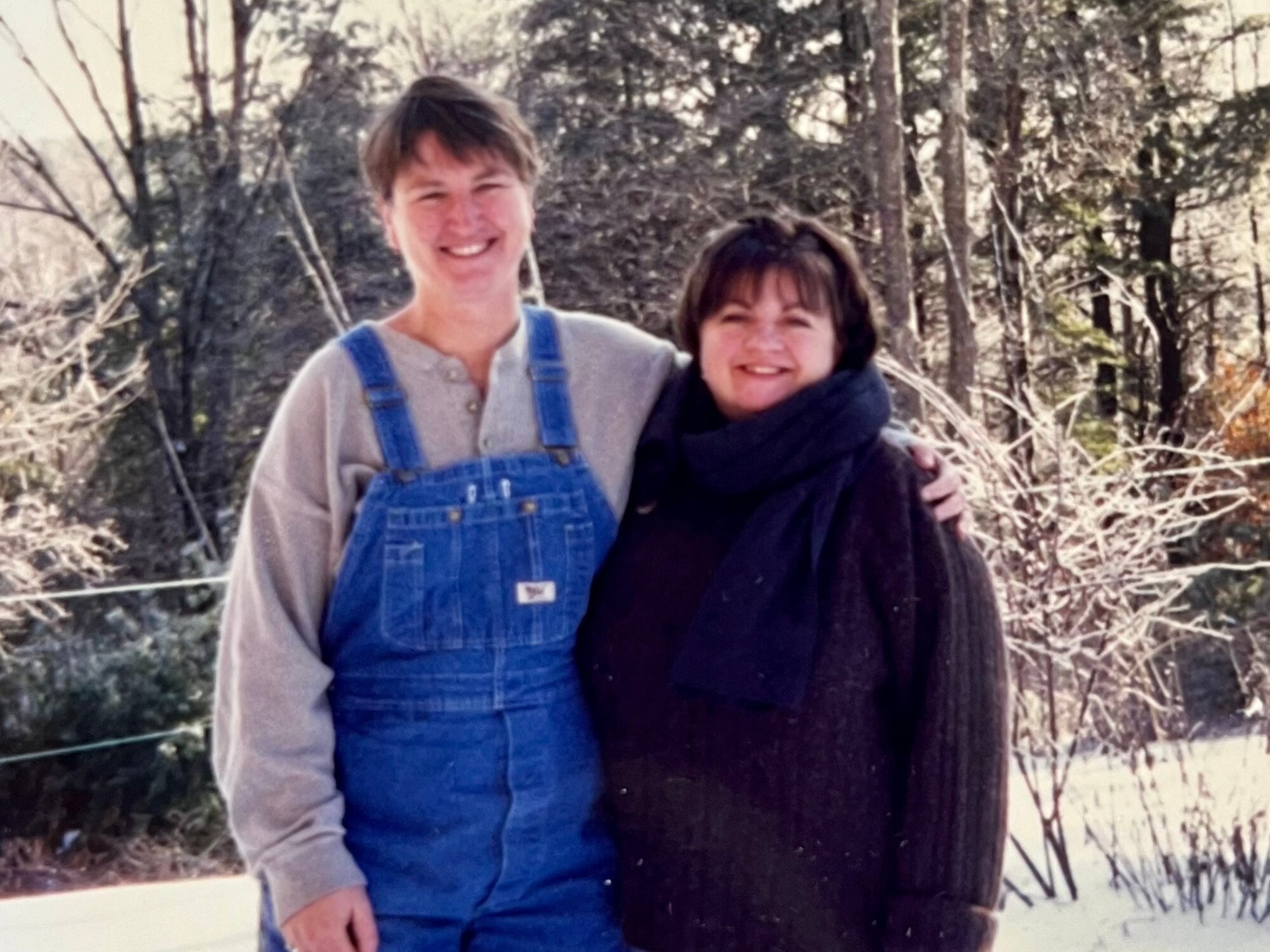 Pam and Lisa
Pam and Lisa
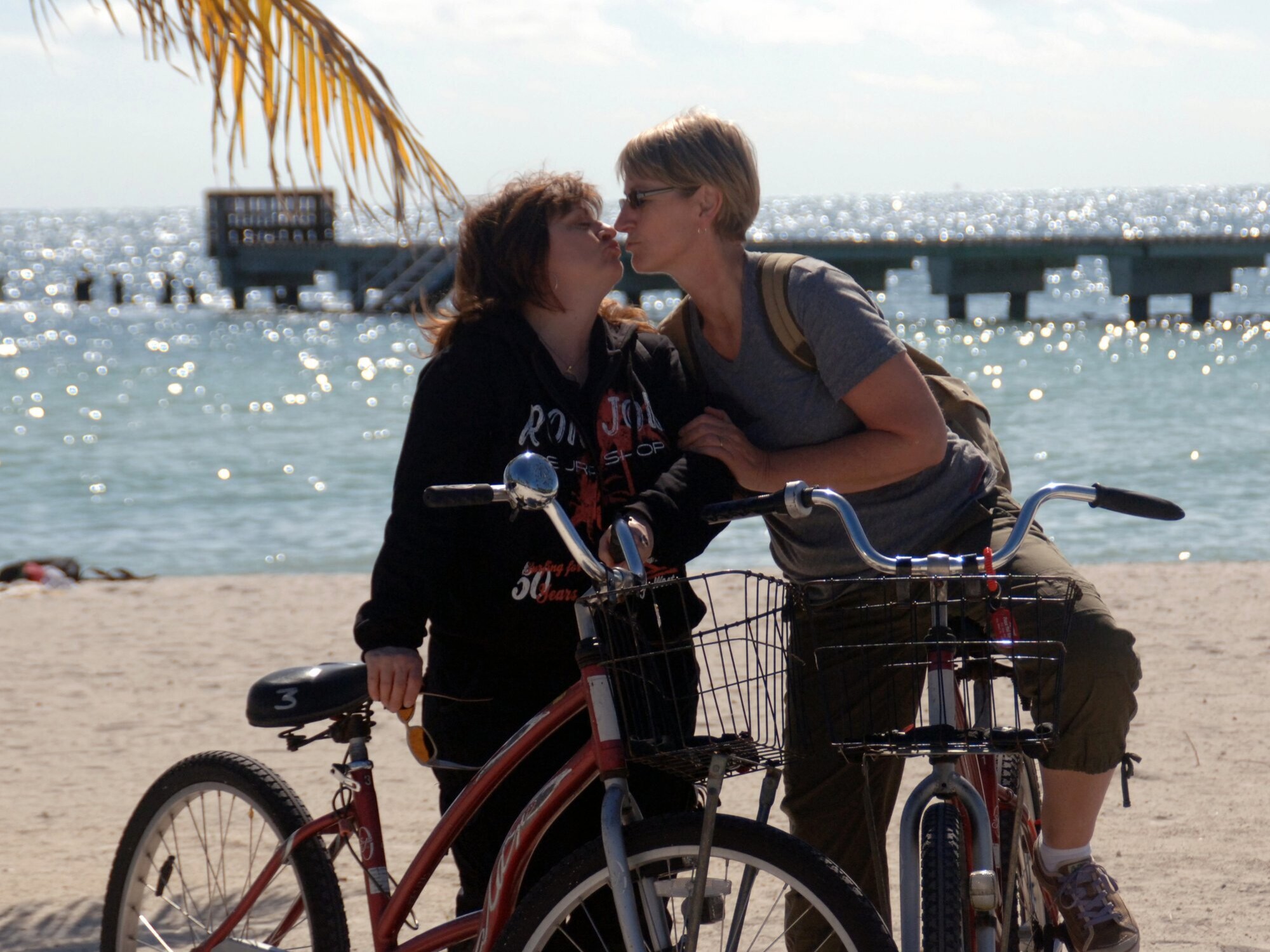 Lisa and Pam
Lisa and Pam
Both women have found acceptance of their sexuality and their community, and they believe that LGBTQ life has progressed. Lisa observes that today, gay folks live openly and bravely, unlike before when it was still a secret.
The early 1980s were a period of genuine growth for the gay and lesbian community after events such as Stonewall and other riots/protests opened people's eyes to their struggles. However, even with those strides, people still lived double lives. While the general public segregated the lesbian community into butch and femme, the dyke culture was still going strong.
Change was happening, but it was slow.
HIV/AIDS emerged during a particular period of their lives. Lisa's roommate started talking about this "cancer" that only affected gay men and was feeling worried.
"Little did we know how it would explode into the lives of many. I don't think there's a way to explain how this felt or impacted our community. It changed things in so many ways. We all had to become advocates and allies for ourselves and our families. It pushed all of us out of our closets.”
On this serious subject, Pam notes, “It is hard to explain to someone younger how the AIDS crisis changed society politically and culturally. Suddenly, people had to fear not only coming out but also public opinions about the community they identified with.”
She also remembers when bars and clubs became a mixed company with straight folks wanting to hang out.
"While what we said we wanted all along was to be included in a society like everyone else, it was weird to lose our own space. Women-only events began to disappear locally and in popular culture, and the great "coming out" that began with Ellen was happening not just on television but in music.”
From her perspective, lesbians began to disappear during the '90s and early 2000s. Movies and sitcoms had gay male characters, so there was no place for lesbians other than daytime talk shows. Ellen followed Rosie on TV; they gained acceptance because they appeared "nice." Lilith Fair was incredible, but even there, you didn't see many self-proclaimed lesbian performers.
Of course, she says, "If you want to see change (then vs. now), look at women's college basketball and the WNBA"!
Pam's history includes attending the Michigan Womyn's Music Festival with her first partner every August. They went every year from about 1987 to 1995. "The Fest," as it was known, was where you could let your freak flag fly proudly. Pam has vivid memories of the year that Tracy Chapman performed. An unknown at the time, her music was on the radio a year later.
"That didn't happen with many other women performers. Those were great times and great memories."
Pam also expresses her pride for the efforts of the gay and lesbian community before the 1980s, which led to Wisconsin becoming the first state to ban discrimination based on sexual identity in 1982. She further mentions that she and her friends sponsored Tammy Baldwin, an openly lesbian candidate, in the late '80s and helped her get elected. There was a particular pride in being part of the marches and coming out of the closet once they accepted their true identity.
Lisa is proud that she and Pam are in a position to mentor younger people. "We have young trans friends and family who are just starting their journey into personhood, and it's extraordinary to be their role models."
Both women are concerned about the complacency that can occur with many minorities and their rights. They can see the gains but think LGBTQ people need to realize that these strides can be fragile and taken away. "Although accepted by most, we are not universally embraced. Public perception can take generations to change, but we must continue fighting for the rights of non-conforming people."
The couple, now retired from Outpost, would like to share their thoughts for the future with the next generation of the LGBTQ community.
Lisa strongly advises voting for your rights and the rights of others, being kind, being brave, and finding your people. Pam wants younger people to remember LGBTQ history and every social movement that made that history. She says being yourself is not a crime; we might always have to fight to keep it that way.
Don't take anything for granted.
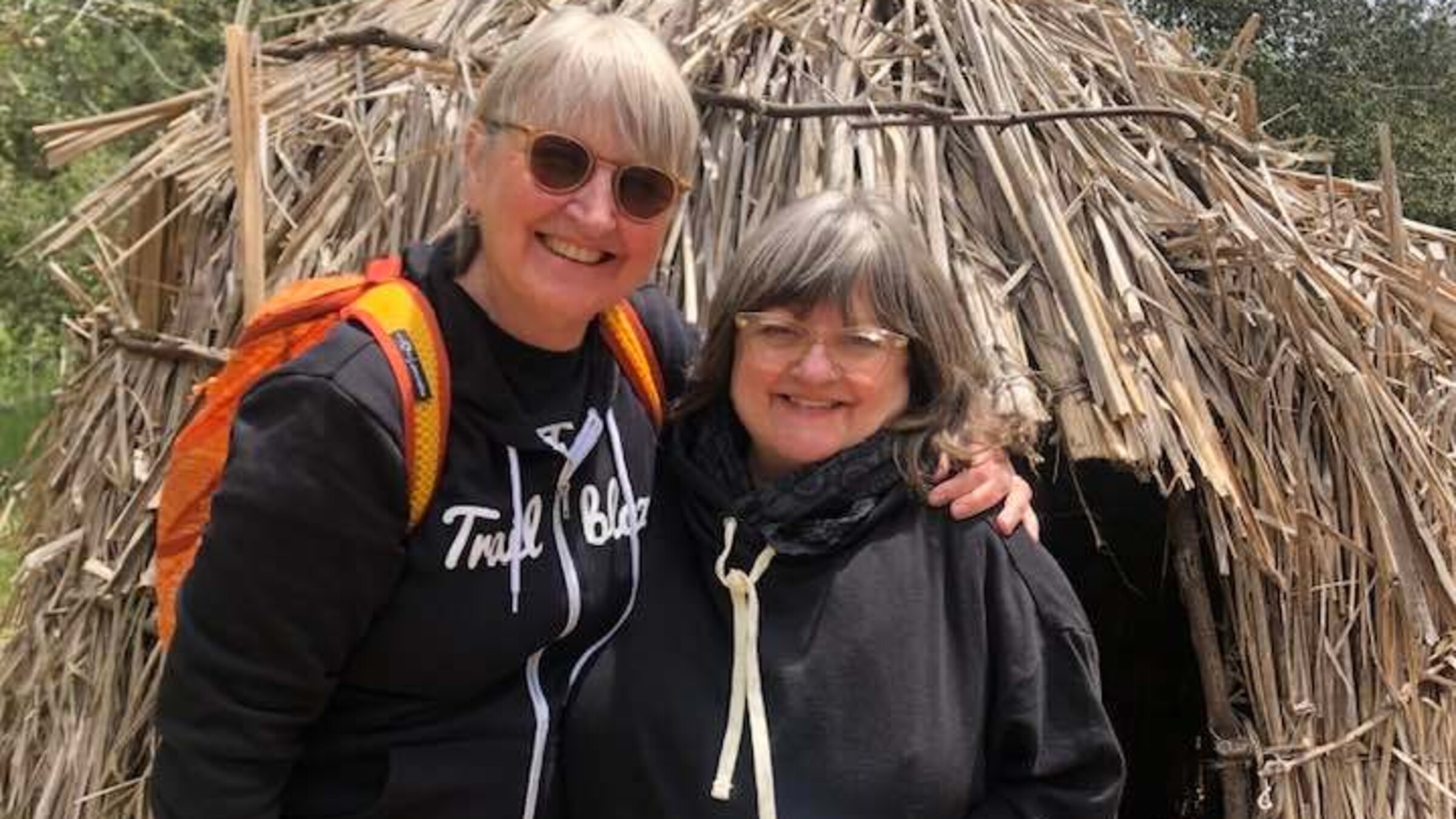 Pam and Lisa
Pam and Lisa
recent blog posts
April 06, 2025 | Michail Takach
Camille Farrington & Vicki Shaffer: standing up for students
March 31, 2025 | Amy Luettgen
March 29, 2025 | Michail Takach
The concept for this web site was envisioned by Don Schwamb in 2003, and over the next 15 years, he was the sole researcher, programmer and primary contributor, bearing all costs for hosting the web site personally.
